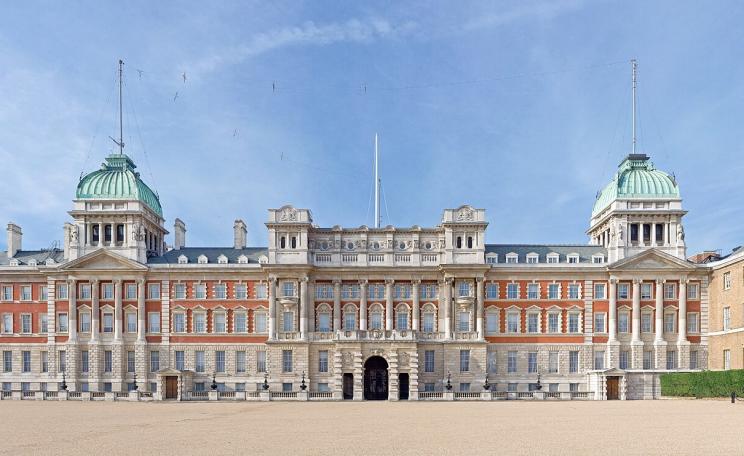-
Change on an unprecedented scale is necessary if human existence is to survive in a recognisable form, never mind flourish and reach its true potential.
The scale and urgency of this change is extremely daunting, especially as the current direction of travel appears to be in the very opposite direction. The imminent threat of climate breakdown, the crisis of biodiversity collapse and the exhaustion of our soil on a global scale are the most widespread and serious aspects of the problems that needs to be addressed.
We must build a new iteration of human civilisation based on meeting needs, on trust, and on beauty. But how?
Social change
I was born into and raised into families that were socialist, and therefore concerned with both the theory and the practice of social change on a global scale. I have spent my entire professional life as a journalist and at all times the aim was to raise public awareness of the colossal harm being done to communities, to nature, to life.
Witnessing the ascent of neoliberal capitalism with its highly organised and all encompassing devastation of nature - the forests, the farmland, the communities and civic institutions - has been extremely distressing.
Read our On The Nature of Change series here.
Yet, all is not lost and much has been learned in those lost decades. I have been an activist, an investigative journalist and a strategist. The problems I have faced in organising have each taught me something different.
I am also extremely fortunate to have been able to take some time away from the frontline to read the extraordinary range and depth of analysis and research that is now readily available, to develop a clear and concise hypothesis about how we can develop as individuals, as teams, and as a society as a whole.
This series presents a theory of change. This theory has been called dialectics, organisational science and general systems theory. It's a theory of everything, everywhere. It is a universal theory, which means that it can be applied to every aspect of life, in every field and discipline of the natural and the social sciences.
Systems theory
Systems theory proposes that everything we experience is part of an interconnected whole that is constantly evolving. We do not live in a static world, which because of one cause or another is forced to change. Instead, change is the only constant.
Systems theory is also anchored on the first and second laws of thermodynamics. The second law, known as entropy, states that everything is moving from the statistically improbable state of having complex patterns and clusters of matter (you, me, your house, country and indeed planet earth) to a state of uniformity. The universe is expanding, cooling, degrading. “Things fall apart, the centre cannot hold”.
But within this, we know that some aspects of our world are becoming more complex. This includes life. The human brain is currently understood to be the most complex organ on Earth, and is a relatively recent arrival.
We need to understand how we can have increased complexity within entropy. Dialectics offers some extremely useful ways of understanding these cosmological, universal questions.
Systems theory, which I present as an aspect of dialectics, looks at life, biology, and human beings as a practical solution to the apparent contradiction of increased and decreased complexity.
Human behaviour
Systems theory also serves as the standpoint from which we get a much clearer understanding of human behaviour. Each of us human beings is a system, sharing some discernible characteristics with all systems.
The primary driver of human existence is sourcing the energy we need as systems to retain our structure, our patterns, in a universe of entropy. Further, our internal and external systems tend towards 'homeostasis', the drive to equilibrium - by extension, the drive to remain close to people and places that provide safety and avoid danger.
This evolutionary development has been selected and remains decisive in how we as humans navigate our own worlds.
We can extrapolate from this systems analysis of individual behaviours to learn more about how we interact in groups. The way that humans behave as and in groups has been developed through millions of years of evolutionary change.
Dialectical systems theory also provides vital insights into how humans behave when aggregated into society, millions and hundreds of millions strong. We can see whole societies as open systems, constantly evolving through the exchange - or metabolism - of energy from nature through labour, through production.
Explosive potential
When understanding human societies as a differentiated but integrated aspect of nature, we can develop more successful ways of developing societies so that they enrich the natures on which they are completely dependent.
This is the starting and finishing point of this project: we need to develop a practice of change where human activity is integrated into a regenerative and restorative nature. We know this already, and we have been trying.
I hope that this exposition may increase the chances of success for at least some of the people who engage with it.
This theory of change is radical, and remains a minority pastime. It directly contradicts much of mainstream thinking. It cuts against philosophical hegemonies of Cartesian reductionism (a mind/body dualism) and also romantic vitalism (which distinguishes between living and non-living organisms).
Dialectical systems theory has also been fomented in times of social unrest and extreme distress. It has been suppressed, not least by the Prussian state; it has been misrepresented, by the great manipulator Stalin as well as his avowed enemies; it has more recently been co-opted, plagiarised, stolen and stripped of its most transformative and radical aspects.
I hope here to piece it back together as much as I can, restoring its explosive potential.
Extreme disruption
The aim of this series is to share a complex theory of change which is both internally coherent and also corresponds to lived reality.
We are anticipating extreme disruption to billions of lives. We are advocating that people do not hunker down into the seeming safety of established personal practices, isolated identity-differentiated groups, or indeed authoritarian national governments; we are instead asking that people show enormous courage, to fundamentally change how they relate to others, how they act within their social groups and their expectations of society as a whole.
The change that is now necessary requires that not that we identify the ‘culprits’ elsewhere among the powerful, but that we establish practices of empowerment and move each of us towards new ways of being empowered.
If we really are to advocate such transformations, we need firstly to be extremely sure of our analysis and our prescriptions, and we need secondly to be convincing.
Highly complex
While I assume that we agree on the necessity of change, it is important to be clear about the nature and degree of change that I am advocating.
The theory of change presented here is applicable whether you simply want to improve your lived experience, change the power dynamic in your office, or fundamentally rebuild the economy from the soil up.
This theory is highly complex, as is the world to which I attempt to apply it. Any text which attempted to provide a comprehensive account of this work would be encyclopedic - indeed Biblical - in scale.
Therefore, to make this account manageable, I have been focused in aim and limited in scope. The change I want to see is fundamental: from a society dominated by an economic system where the primary driver of activity begins and ends with the pursuit of profit, to a new global culture where directly meeting human needs becomes the motive of social interaction.
This is an economy where the most fundamental, absolute needs are met socially - food, shelter, connection - in the most efficient way so that these same individuals have a considerable amount of free time to pursue their own development and fulfilment.
Need
This may sound utopian, but we need change on a grand scale if we are to transform our economy and prevent climate breakdown.
Indeed, as I will argue towards the end of this text, the continuation of a profit economy in any form will lead to the total destruction of nature in a relatively short period of time.
Need is absolutely central to this theory of change. It begins with being better at identifying our own needs - using dialectical, organisational and systems theories - and ends with ensuring they are met. This significantly increases self esteem, resilience and efficacy.
In turn, we need to identify the needs of the group we work within - the explicit, and implicit needs, the institutional and the personal. This effectiveness of this process is why systems theory has been adopted by teams and companies, often rendering them more successful.
Finally, we need to transition to a society where each members needs are met through collective activity. This includes - perhaps paradoxically - the needs for freedom, independence, self expression.
Everyday lives
Any social movement that begins with the proposition that our perceived needs are false, illegitimate, selfish cannot be transformative.
Change will come from those in society whose needs are not met, not those whose desires are overwhelmed. This is particularly true after a decade of austerity, in which needs are indeed acute, waste is profligate and inequality deeply destabilizing.
My objective in writing this book is not to act either as a philosopher or a scientist. Instead, I hope to curate a single, if ever evolving, theory of change which is compelling in its consistency and in its explanatory power, a theory of change which readers with no previous exposure to these ideas can not only follow but also use in practice in their everyday lives.
This theory of change begins with Aristotle in ancient Greece, is significantly extended by the work of Hegel at the height of the Enlightenment, utilised by Dr Karl Marx in his analysis of capitalism, further developed by the almost unknown Dr Alexander Bogdanov in the smelting heat of the Russian revolution before being ever changed by professors Ludwig Von Bertalanffy, Fritjof Capra and Dr Daniel Christian Wahl into systems theory, which is recognisable today in the form of theories of change adopted in corporate boardrooms.
Practical application
The theory of change has been described as “dialectics”, as “organisational science” and as “general systems theory”. Each is a development, an iteration of the former. At each stage something has been gained. However, even more has been lost.
This is why I want to set out the one theory of change that takes in all three stages, rather than simply advocating for the adoption of systems theory - the most recent, the most widely known and the most socially acceptable.
This theory of change has been set out before (although perhaps not in one place, and not in this way). However, it is not widely known, and where it is known it is widely misunderstood. There is now a movement underway to bring clarity to the theory and to raise awareness of its integrity and usefulness.
The argument that the theory of change being advocated here is a single, if evolving, object of study is very rarely put but not entirely unique. However, the way it is being presented is new and original. This is because my aim in presenting this theory of change is not academic but instead practical.
I feel sincerely and strongly that it is the analytical tool we need to use in order to understand - and fundamentally - transform our predicament. I have stripped this theory down to its absolute essentials, retaining only what is necessary to substantiate my claims about how we achieve personal change, how we transform the teams who we interact with, and how these teams in turn form civil society - as an inherent and determining aspect of nature.
Open systems
The change that we need must unfold on a global scale, being realised through the actions of billions of people.
The philosophers I have turned to are interested in understanding ‘universals’ rather than ‘particulars’, to arrive at an analysis of what is true for all, rather than some.
By way of example, I will be arguing that all human beings are living things, that all living things are open systems and that open systems of all kinds have particular characteristics.
Through a philosophical and scientific examination of systems we can learn about behaviours that are common to all human beings. Therefore, the proposals for effecting change presented here should - in theory - be applicable to every workplace, every activist group.
Sublation
I will be looking at how systems theory is foundational to the work of Dr John Bowlby in his development of attachment theory and how this can be used to understand our own behaviours and that of people working alongside us.
I then extend systems and attachment theory to provide a framework to explain the findings of Dr Wilfred Bion, a psychotherapist, in working with groups of people and how this can be used positively when working in teams. As far as I'm aware, this is the first attempt to bring Bion’s work into this framing of social change.
Finally, I will present a concise appraisal of how this particular theory of change has been used by a community of Marxist ecologists to develop an important understanding of the form and function of capitalism, of society and its (dysfunctional) relationship with ‘nature’.
I also want to practice what Hegel described as ‘sublation’. This is a description of change where some characteristics are retained and others are lost, resulting in a new iteration which is both the same and different to its origin.
Sublation takes the form in academic writing of ‘criticism’. You assume your interlocutor has read and understood an argument, through criticism you remove the points with which you agree, and through this you create a new body of knowledge which you believe to be an advance.
I want to practice sublation in the opposite. I will take from my sources everything I agree with and simply ignore everything else. I will arrange what I have plundered in such a way as it gains a new coherence. This is another way of saying that I do not endorse everything (or indeed, much) written by the academics I rely on. I hope you will judge what is presented on its own terms, rather than resisting the argument on the basis that one person referenced said something awful in their personal diary.
Audience
This series is not written to make easy reading. It is by design extremely dense and will introduce definitions of commonly used words that are different to common usage. This is because the objective of presenting coherent and complex ideas which are applicable at three essential levels for social change sits above making this text accessible to a wide audience.
The intention is that as soon as this series is complete the work of developing further articles and educational materials which are accessible (intellectually, financially) to everyone who wishes to engage with them will begin.
This text is aimed at people who are already actively engaged in political and environmental campaigning, who do already have a sophisticated understanding of the need for and possible methods of change.
The ideas presented here can serve as an advance or complement to this existing analysis of the world.
Enlightenment
The theory of change I am proposing has its limitations. There has been a significant critique of the reliance on rational thought - the Enlightenment - as ignoring and marginalising traditional knowledge and female voices.
It is a source of acute embarrassment that almost all the people named in this book can be classified as male, pale and stale.
The rational has often been positioned as the opposite of the “irrational” which is taken to mean the emotional, the artist and the creative. People who do not engage in speculative philosophy or understand grammar as the foundation of deductive logic have been told that their opinions are valueless, their needs invalid.
There is much to be known about the world, and the people who inhabit it, and the methods of changing it, which cannot be deduced from information obtained by empirical science. The arguments presented here should not be used to displace or ignore that knowledge.
However, there is another compelling story about the theory of change presented here. The development of dialectics, through organisational science and systems theory (to a lesser extent), has been formed on the very margins of society, by thinkers dedicated to social change who themselves experienced extreme poverty.
Transformative potential
These ideas have always been considered extremely dangerous to those in power because of their transformative potential. The deductive, empiricist reasoning relied on here has explanatory power that can provide a compelling argument about how knowledge gained through experience has been gathered, filtered, perfected, and transmitted to become increasingly valuable (even though this knowledge did not come from deductive, empiricist reasoning).
The primary weakness of empiricism is that it does not automatically, intrinsically guard against bias - not least the bias about what questions are valid, what experiments should be funded, and what results should be buried or promoted.
This problem is particularly acute in the modern pharmaceuticals industry. The weakness of deductive reasoning is that when you start with a false premise, it is likely that the entire edifice developed through logic will also be false. If you begin with the premise that women are not equal to men, you will conclude with a series of injustices predicated on logic.
It is little wonder that some feminists have questioned the value of “rationality” and the Enlightenment. As John Meynard Keynes, the economist, once observed: “A remorseless logician starting with a mistake will end up in Bedlam.”
I believe that deductive, empiricist reasoning is a powerful force for change - as long as its limitations are well understood.
Both eyes open
The premises with which I begin are that all human beings have the same intrinsic worth; indeed that life itself has intrinsic worth.
From this I conclude that the needs of each should be a concern for all and that the sustainability of life in perpetuity should be a primary concern today.
If you disagree with these values then you are likely to find much useful in the following text, but I would actually prefer that you did not. Seeing the world through deductive reasoning and empiricism is like looking at a landscape with one eye open. The second eye - of values, emotions, a sense of self, traditional knowledge - is the other. I hope to see the world in three dimensions, in vivid colour, to avoid danger and to appreciate beauty. To see with both eyes open.
The question naturally arises at this stage: why do I feel that I have found some answer to an intractable problem which is different to and seemingly superior to what you already know.
I am not making any claim to having any capability which is not common to each of us. My own experience has been that I have been attempting to change things for the better, and have throughout my life hit against a series of brick walls.
Patterns of behaviour
As these challenges continue, you read the literature and ask advice of others. You also begin to notice patterns of behaviour that are common to the groups you work with, despite the varied backgrounds, educational exposure, and even cultural contexts.
I have also been extremely fortunate that for almost a decade I have been afforded the financial and organisational support to conduct ‘investigative journalism’ - which covers a multitude of sins. It has been part of my paid employment to attempt to understand how to effect change, and to use my own judgement as to what facts and ideas I can pursue.
This has resulted in my falling down dozens of rabbit holes. I am also fortunate, I believe, to have had a father in Ken Montague who believed in the value of intellectual endeavors as an integral and vital aspect of political campaigning. He encouraged my own natural curiosity as a child, answering my incessant question ‘why’ until we ended up lost somewhere in the midst of his understanding of string theory.
Ken was a Marxist, and this has proven to be a good place to start in understanding change in a changing world. My questioning has continued, and rather than simply trusting the word of Marx I have pursued his claims and use of the dialectical method backwards and forwards, challenging his premises, and following others beyond his conclusions.
This series is a result of that endless questioning. It might be worth adding that I had no understanding of what is presented in this book ten years ago, and some of the concepts I have come to fully appreciate only in the act of writing this now.
Which does not say that I am right, or that what I am saying is new and useful. I hope that by attempting to follow from speculative philosophy in developing and presenting an argument that is internally coherent and in using the natural scientists to test whether this corresponds with our shared reality the value in what I am proposing will become ever clearer.
Scattered and dispersed
Everything I have learned and everything I present here has come from asking a basic question: how can I change this? The answers I found have changed me. I feel like if I had access to some of these arguments I would have saved a considerable amount of time, prevented a lot of mistakes and avoided just a little heartache.
In life, you cannot reboot and start the game again with knowledged gained. But you can pass on the little bits of useful insight you have acquired to others. To assist in this process, the final section of the book explains how the concepts presented have been absolutely transformative for me personally.
I will tell the story of how dialectics, systems theory, attachment has fundamentally changed my life experience - has made me a more effective human being, how it has enhanced and improved my work with teams and groups of campaigners and finally how I feel it can have a practical impact on the universal project of changing the world.
This final project is as yet undone. And it begins, I hope with your reading, critiquing, sublating the ideas which now follow.
The theory of change here presented has been created and also utilised in historical moments of extreme volatility and flux. It has brought down dictators, challenged empires that have dominated most of the globe, and has liberated millions of people. But it has also been resisted, distorted and turned against itself.
Today it is scattered and dispersed. I am one of many who has been trying to pick up the pieces and reassemble it again. To be of any use at all, it needs to be brought into use again. I’m very curious to know whether this is a project that you will be interested in joining.
This Author
Brendan Montague is editor of The Ecologist, founder of Request Initiative and co-author of Impact of Market Forces on Addictive Substances and Behaviours: The web of influence of addictive industries (Oxford University Press). He tweets at @EcoMontague.
Read our On The Nature of Change series here.







